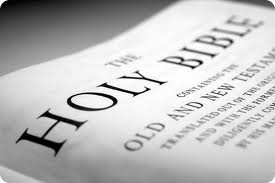Love is the Law and the Law is Love
‘Thou shalt love the Lord thy God with all thy heart, and with all thy soul, and with all thy mind.
This is the first and great commandment. And the second is like unto it,
‘Thou shalt love thy neighbour as thyself’.
God’s Bible makes it clear that the above two commandments are the key to ‘all of the Law’:
On these two commandments hang all the Law and the prophets.

It therefore follows that man cannot make Law: he can only issue decrees, make rulings or pass legislation, which do not automatically have the binding force of Law or authority.
Since the Law is mandatory, any man-made system of legislation and constitution – known as civil law — must expressly include the Law to be properly constituted ‘law’, whether you call it maritime law, admiralty law, contract law, constitutional law, commercial law, trust law or some other name for a system of law. If a civil or legal code fails to recognise the Law, it is per se unlawful and cannot prevent you from insisting on your Common Law right to redress, if your rights are infringed.
When we use ‘law’, we are therefore describing a system founded on God’s laws yet extended to include legislation and other statutes and rulings. The ‘law’ part is created by God. The rest is created by man.
Maxims of Law
The rule of Law is paramount and mandatory
Everyone is equal before God and the Law
Man’s ‘law’
Because only God can make Law, it follows that the most honest interpretation of the word ‘laws’ must refer to the two commandments of God’s Law.
Where the phrase ‘man’s laws’ exists in the Bible, it must therefore be interpreted primarily as: ‘the laws man is bound by, the two commandments’ rather than ‘the laws created by man’ because only God can create law. Obviously, people use the word ‘laws’ to describe legislation created by man but this is inaccurate and wrong.
As the word of God — told through prophets and now the Christ – the Bible is a higher authority in law than any dictionary when it comes to interpreting the right meaning of words. The distinction is rehearsed many times in the Bible:
On the other hand those who rely on obedience to the law are under a curse; for Scripture says: ‘Cursed are all who do not persevere in doing everything that is written in the Book of the Law.’ It is evident that no one is ever justified before God in terms of law; because we read, ‘he shall gain life who is justified through faith’. Christ brought us freedom from the curse of the law. Galatians 3:10-12, The New English Bible
To be obedient to the two commandments of Love written in the Book of the Law — also known as the Bible — is an expression of faith, which leads to redemption. To be unquestioningly obedient to legislation – whether religious, biblical or secular — is an expression of fear, indicative of the mind-set of the slave, the man who has given up determining right and wrong for himself, the man who all too easily allows himself to be manipulated. And there is no one more dangerous than a slave who wrongly believes he is free. The test of the man will be though how he reacts when he is shown the evidence of his slavery.
Because of this, a vigorous ‘democracy’ can all too easily turn into ‘mob rule’. It is not those who know they practise evil who pose the greatest threat. It is men like Tony Blair who commit evil and imagine they are doing good because they have legislation created by man on their side – but not Law created by God.
The Bible makes it abundantly clear that law, small ‘l’, is legislation, a temporary measure introduced until the arrival of the ‘issue’, which from context can only be read in the first instance as ‘Christ’:
Then what of the law? It was added to make wrongdoing a legal offence. It was a temporary measure pending the arrival of the ‘issue’ to whom the promise was made. Galatians 3:19, The New English Bible
Any use of the word ‘law’ — where there is no method of determining rights under the Law — is misrepresentation and fraud.